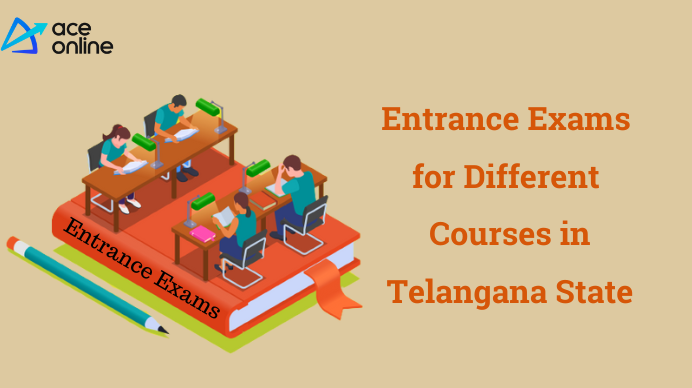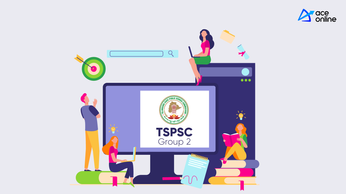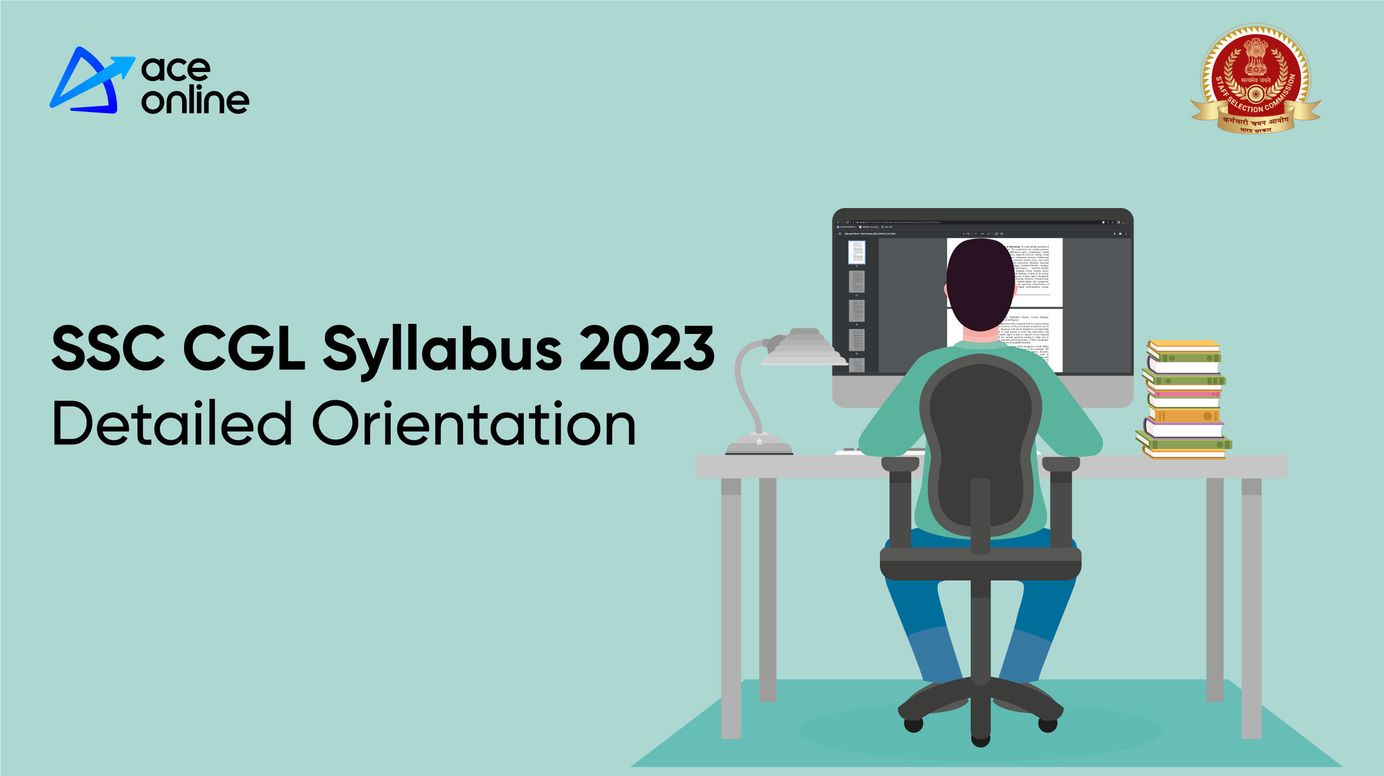
SSC CGL Syllabus 2023: Detailed Orientation
The combined Graduate Level (CGL) exam is considered one of the most prestigious and sought-after exams conducted by SSC. The SSC CGL exam is conducted in four stages: Tier-I, Tier II, Tier III, and Tier IV.
The Staff Selection Commission (SSC) is one of the most renowned government organizations that conducts various recruitment exams for different posts in central government departments. Among these exams, the Combined Graduate Level (CGL) exam is considered one of the most prestigious and sought-after exams conducted by SSC. The SSC CGL exam aims to recruit candidates for Group B and C posts in various ministries, departments, and organizations of the central government.
The SSC CGL exam is conducted in four stages: Tier-I, Tier II, Tier III, and Tier IV. The exam is conducted annually, and the SSC CGL 2023 notification has been recently released, and the exam is expected to be held in June 2023. Aspirants who are interested in appearing for the exam must be well aware of the SSC CGL syllabus 2023 to prepare well for the exam.
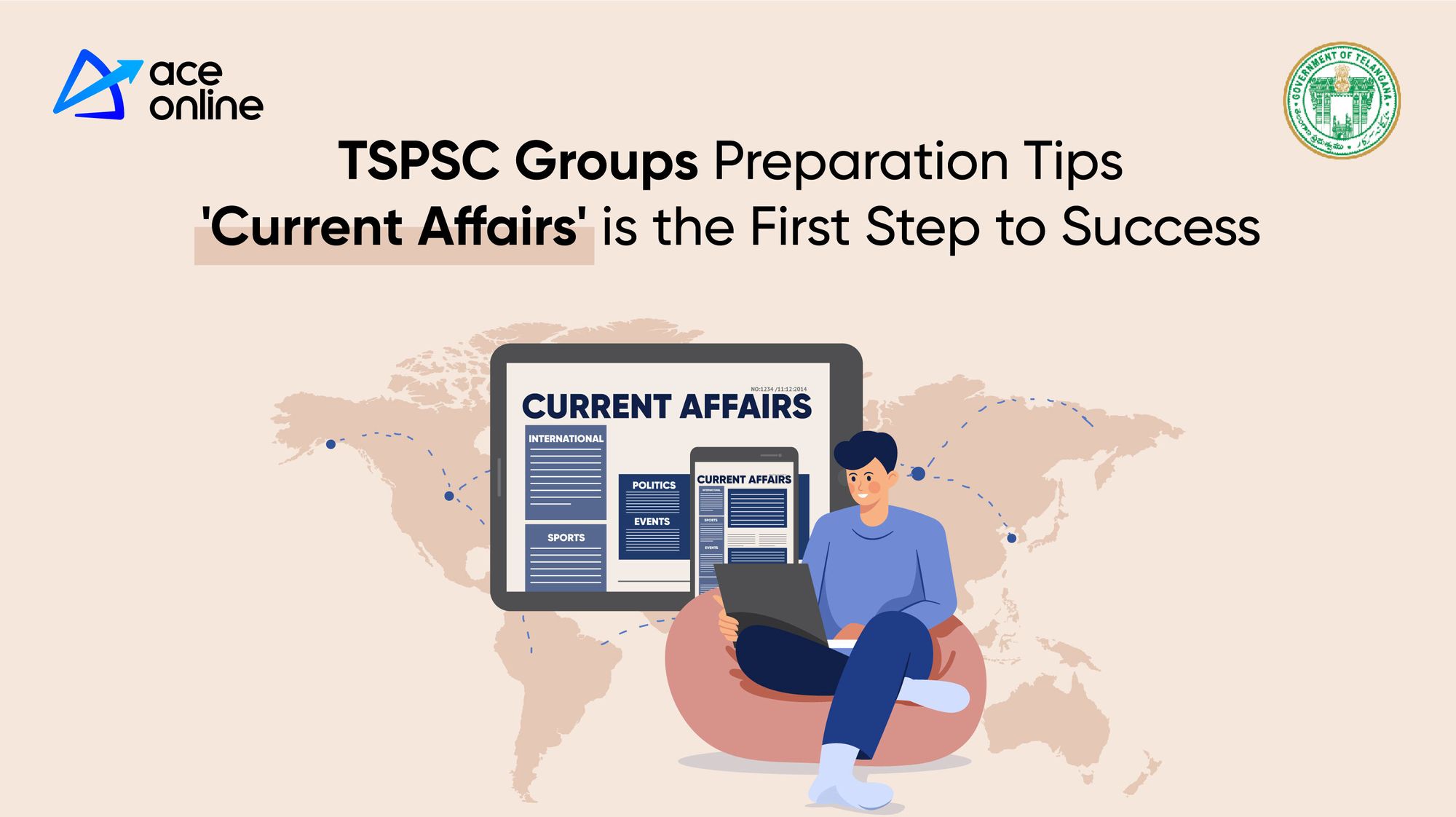
The SSC CGL syllabus 2023 includes four sections: General Intelligence and Reasoning, General Awareness, Quantitative Aptitude, and English Comprehension. Each section comprises various topics and subtopics that aspirants need to study thoroughly to score well in the exam. The SSC CGL 2023 exam pattern and syllabus have been revised, and aspirants must stay updated with the latest changes to prepare effectively.
In this detailed orientation, we will provide you with a comprehensive understanding of the SSC CGL syllabus 2023, along with the exam pattern and marking scheme. So, let us delve deeper into the SSC CGL 2023 syllabus and get a clear idea of what to expect from the exam.
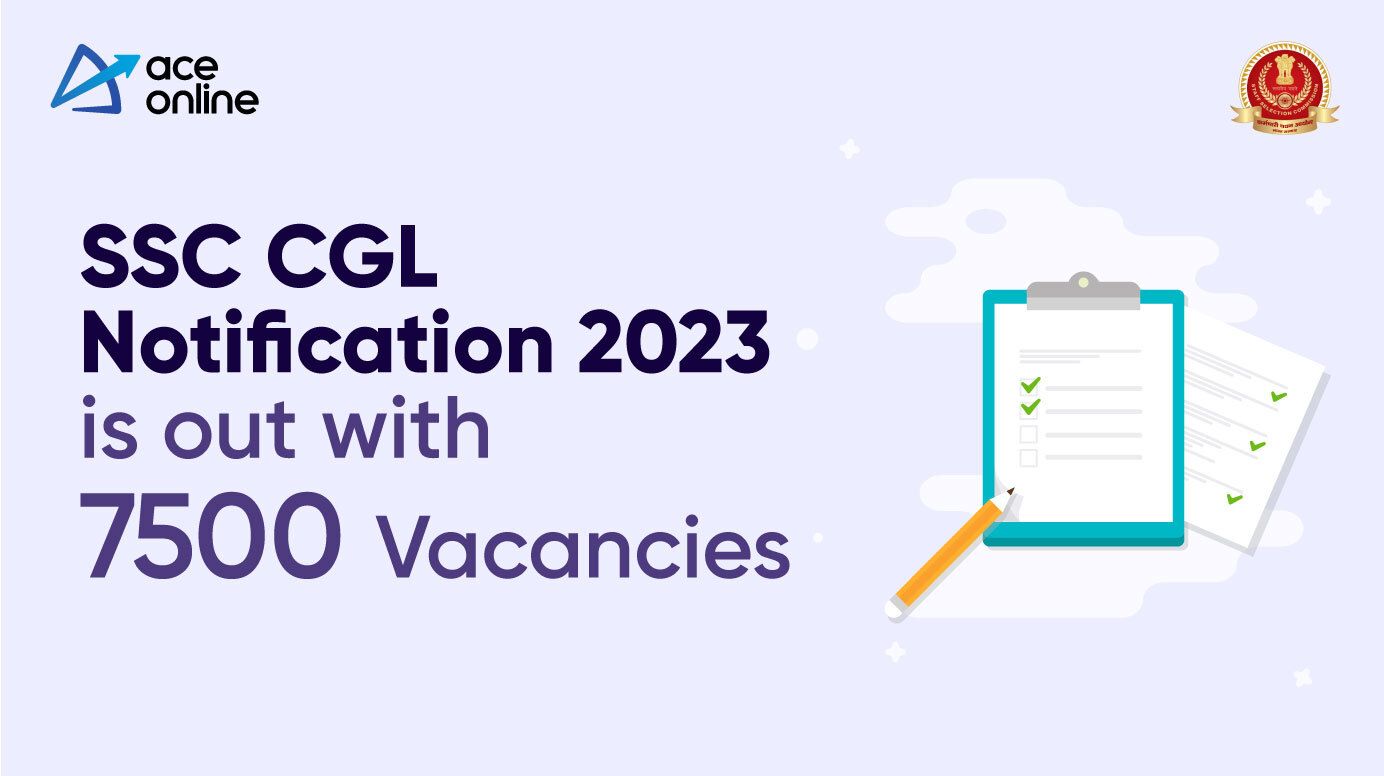
Indicative Syllabus (Tier-I)
Tier-I: General Intelligence & Reasoning Syllabus
Indicative Syllabus (Tier-II)
Module-I of Session-I of Paper-I (Mathematical Abilities)
Number Systems: Computation of Whole Numbers, Decimals and Fractions, and Relationship between Numbers.
Fundamental Arithmetical Operations: Percentages, Ratio and Proportion, Square roots, Averages, Interest (Simple and Compound), Profit and Loss, Discount, Partnership Business, Mixture and Alligation, Time and distance, Time and Work.
Algebra: Basic algebraic identities of School Algebra and Elementary surds (simple problems) and Graphs of Linear Equations.
Geometry: Familiarity with elementary geometric figures and facts: Triangle and its various kinds of centers, Congruence, and similarity of triangles, Circle and its chords, tangents, angles subtended by chords of a circle, common tangents to two or more circles.
Mensuration: Triangle, Quadrilaterals, Regular Polygons, Circle, Right Prism, Right Circular Cone, Right Circular Cylinder, Sphere, Hemispheres, Rectangular Parallelepiped, Regular Right Pyramid with triangular or square Base.
Trigonometry: Trigonometry, Trigonometric ratios, Complementary angles, Height, and distances (simple problems only) Standard Identities like sin2𝜃 + cos2𝜃=1, etc.
Statistics and probability: Use of Tables and Graphs: Histogram, Frequency polygon, Bar-diagram, Pie-chart; Measures of central tendency: mean, median, mode, standard deviation; calculation of simple probabilities.
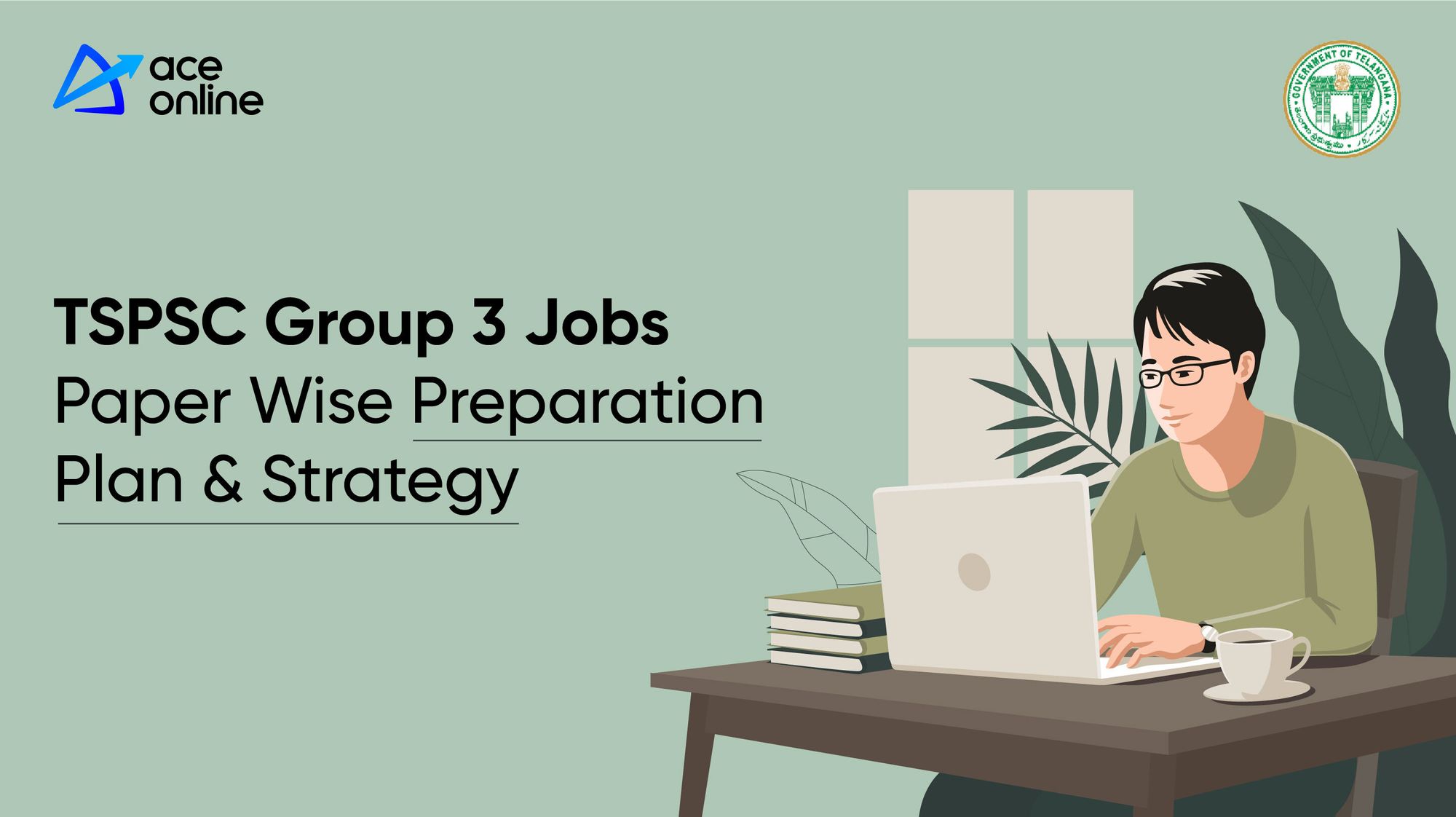
Module-II of Section-I of Paper-I (Reasoning and General Intelligence)
Semantic Analogy, Symbolic operations, Symbolic/ Number Analogy, Trends, Figural Analogy, Space Orientation, Semantic Classification, Venn Diagrams, Symbolic/ Number Classification, Drawing inferences, Figural Classification, Punched hole/ pattern-folding & unfolding, Semantic Series, Figural Pattern- folding and completion, Number Series, Embedded figures, Figural Series, Critical Thinking, Problem Solving, Emotional Intelligence, Word Building, Social Intelligence, Coding and de-coding, Numerical operations, Other sub-topics, if any.
Module-I of Section-II of Paper-I (English Language and Comprehension):
Vocabulary, grammar, sentence structure, synonyms, antonyms, and their correct usage; Spot the Error, Fill in the Blanks, Synonyms/ Homonyms, Antonyms, Spellings/ Detecting misspelled words, Idioms & Phrases, One-word substitution, Improvement of Sentences, Active/ Passive Voice of Verbs, Conversion into Direct/ Indirect narration, Shuffling of Sentence parts, Shuffling of Sentences in a passage, Cloze Passage, Comprehension Passage. To test comprehension, three or more paragraphs will be given and questions based on those will be asked. At least one paragraph should be a simple one based on a book or a story and the other two paragraphs should be on current affairs, based on a report or an editorial.

Module-II of Section II of Paper-I (General Awareness)
Questions are designed to test the candidates’ general awareness of the environment around them and its application to society. Questions are also designed to test knowledge of current events and of such matters of everyday observation and experience in their scientific aspect as may be expected of an educated person. The test will also include questions relating to India and its neighboring countries especially pertaining to History, Culture, Geography, Economic Scene, General policy, and scientific research.
Module-I of Section-III of Paper-I (Computer Proficiency)
Computer Basics: Organization of a computer, Central Processing Unit (CPU), input/ output devices, computer memory, memory organization, backup devices, PORTs, Windows Explorer. Keyboard shortcuts.
Software: Windows Operating system including basics of Microsoft Office like MS Word, MS Excel, and PowerPoint, etc.
Working with the Internet and e-mails: Web Browsing & Searching, Downloading & Uploading, Managing an E-mail Account, e-Banking.
Basics of networking and cyber security: Networking devices and protocols, Network and information security threats (like hacking, virus, worms, Trojans, etc.), and preventive measures.
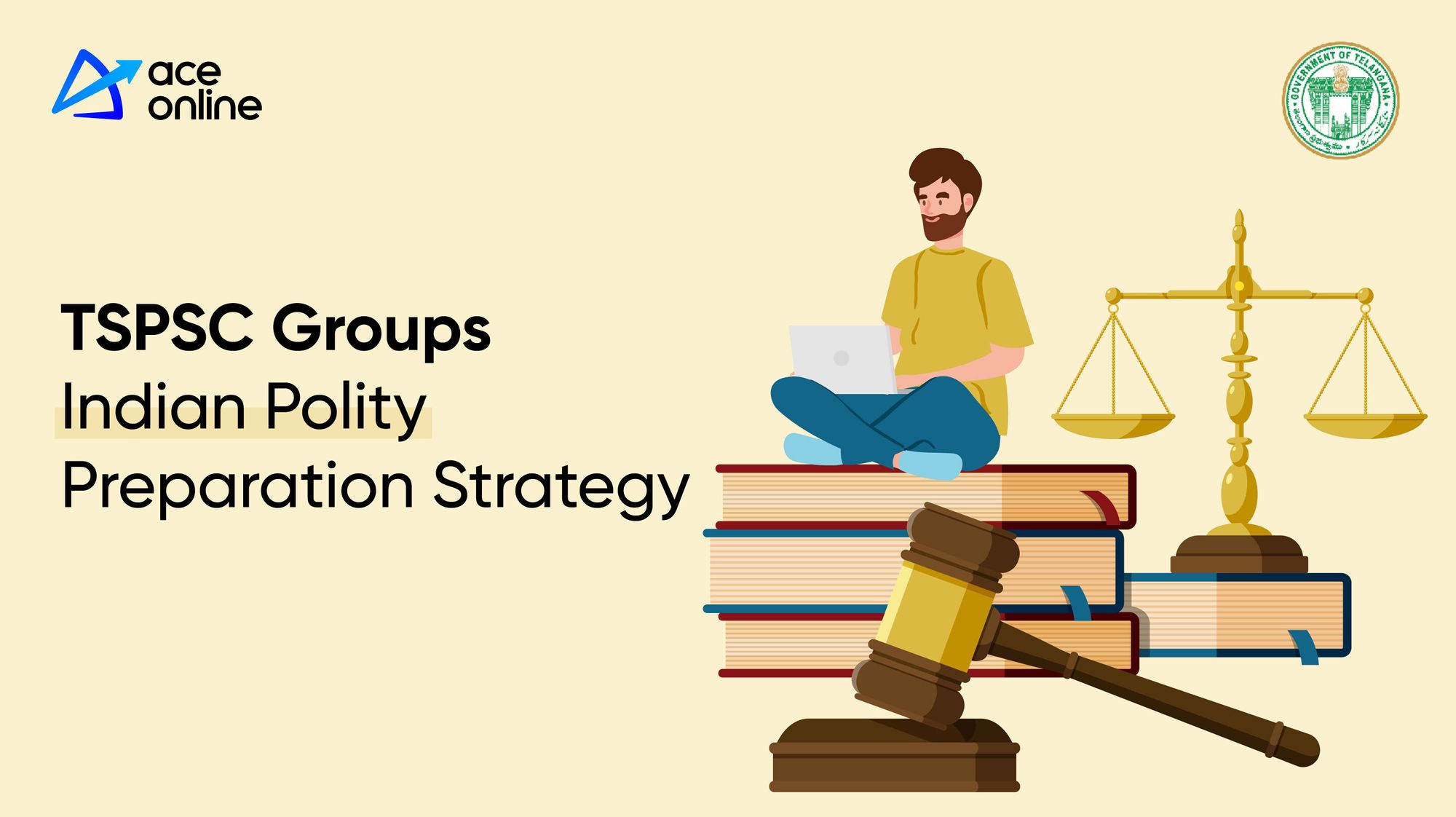
Paper-II (Statistics)
Collection, Classification, and Presentation of Statistical Data – Primary and Secondary data, Methods of data collection; Tabulation of data; Graphs and charts; Frequency distributions; Diagrammatic presentation of frequency distributions.
Measures of Central Tendency- Common measures of central tendency – mean median and mode; Partition values- quartiles, deciles, percentiles.
Measures of Dispersion - Common measures dispersion – range, quartile deviations, mean deviation, and standard deviation; Measures of relative dispersion.
Moments, Skewness, and Kurtosis – Different types of moments and their relationship; meaning of skewness and kurtosis; different measures of skewness and kurtosis.
Correlation and Regression – Scatter diagram; simple correlation coefficient; simple regression lines; Spearman’s rank correlation; Measures of association of attributes; Multiple regression; Multiple and partial correlations (For three variables only).
Probability Theory – Meaning of probability; Different definitions of probability; Conditional probability; Compound probability; Independent events; Bayes’ theorem.
Random Variable and Probability Distributions – Random variable; Probability functions; Expectation and Variance of a random variable; Higher moments of a random variable; Binomial, Poisson, Normal and Exponential distributions; Joint distribution of two random variables (discrete).
Sampling Theory – Concept of population and sample; Parameter and statistic, Sampling and non-sampling errors; Probability and non-probability sampling techniques (simple random sampling, stratified sampling, multistage sampling, multiphase sampling, cluster sampling, systematic sampling, purposive sampling, convenience sampling, and quota sampling); Sampling distribution(statement only); Sample size decisions.
Statistical Inference - Point estimation and interval estimation, Properties of a good estimator, Methods of estimation (Moments method, Maximum likelihood method, Least squares method), Testing of hypothesis, Basic concept of testing, Small sample and large sample tests, Tests based on Z, t, Chi-square, and F statistic, Confidence intervals.
Analysis of Variance - Analysis of one-way classified data and two-way classified data.
Time Series Analysis - Components of time series, Determinations of trend component by different methods, Measurement of seasonal variation by different methods.
Index Numbers - Meaning of Index Numbers, Problems in the construction of index numbers, Types of an index numbers, Different formulae, Base shifting and splicing of index numbers, Cost of living Index Numbers, Uses of Index Numbers.

Paper-III (General Studies-Finance and Economics)
Part A: Finance and Accounts-(80 marks):
Fundamental principles and basic concept of Accounting:
Financial Accounting: Nature and Scope, Limitations of Financial Accounting, Basic Concepts, and Conventions, Generally Accepted Accounting Principles.
Basic concepts of accounting: Single and double entry, Books of original Entry, Bank Reconciliation, Journal, Ledgers, Trial Balance, Rectification of Errors, Manufacturing, Trading, Profit & loss Appropriation Accounts, Balance Sheet Distinction between Capital and Revenue Expenditure, Depreciation Accounting, Valuation of Inventories, Non-profit organizations Accounts, Receipts and Payments, and Income & Expenditure Accounts, Bills of Exchange, Self-Balancing Ledgers.
Part B: Economics and Governance-(120 marks):
Comptroller & Auditor General of India - Constitutional provisions, Role, and responsibility. o Finance Commission- Role and functions.
Basic Concept of Economics and Introduction to Micro Economics: Definition, scope, and Nature of Economics, Methods of economic study and Central problems of an economy and Production possibilities curve.
Theory of Demand and Supply: Meaning and determinants of demand, Law of demand and Elasticity of demand, Price, income and cross elasticity; Theory of consumer’s behavior- Marshallian approach and Indifference curve approach, Meaning and determinants of supply, Law of supply and Elasticity of Supply.
Theory of Production and Cost: Meaning and Factors of production; Laws of production- Law of variable proportions and Laws of returns to scale.
Forms of Market and price determination in different markets: Various forms of markets-Perfect Competition, Monopoly, Monopolistic Competition, and Oligopoly and Price determination in these markets.
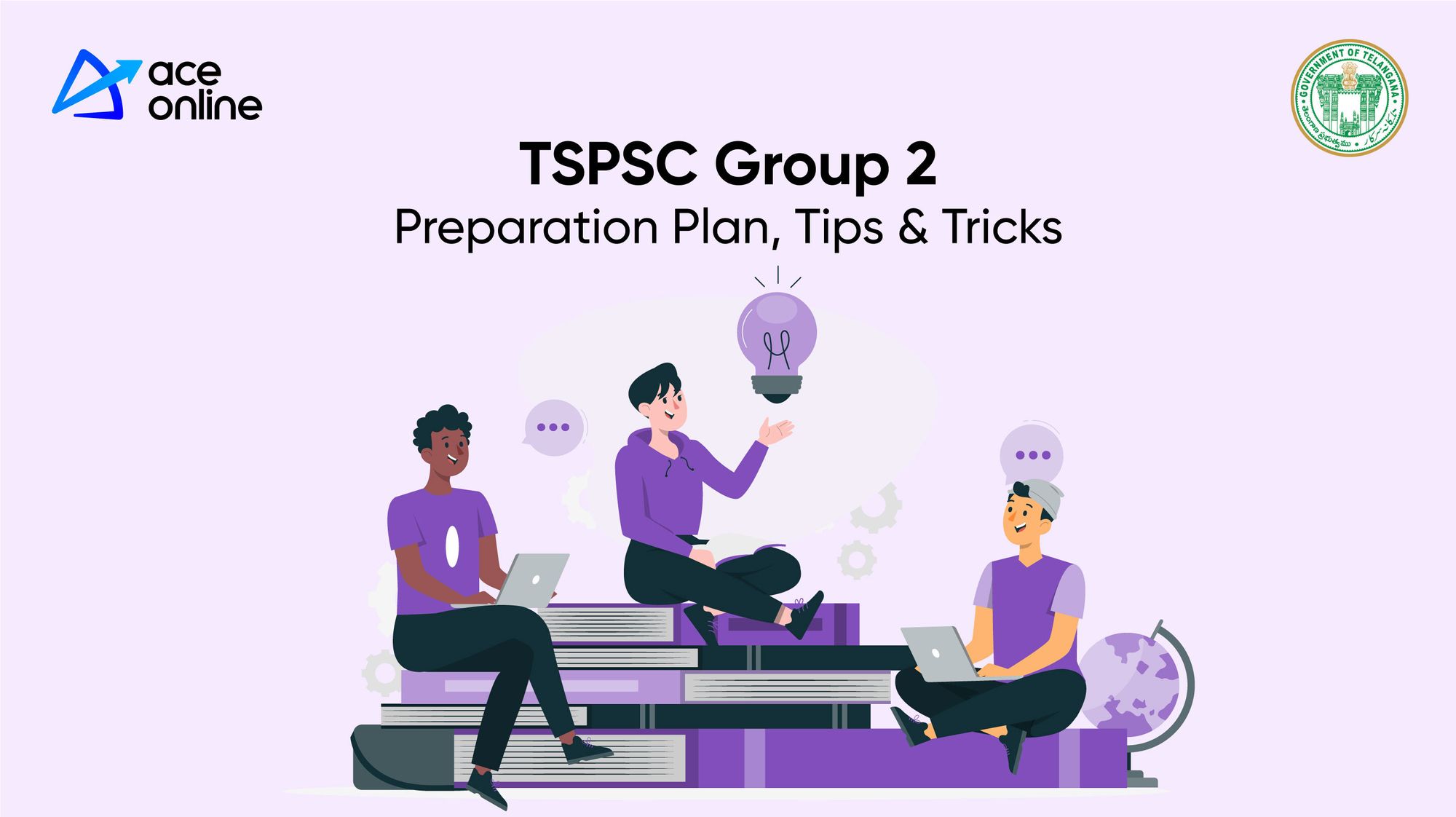
Indian Economy:
- Nature of the Indian Economy Role of different sectors- Role of Agriculture, Industry, and Services-their problems and growth;
- National Income of India-Concepts of national income, Different methods of measuring national income.
- Population-Its size, rate of growth, and its implication on economic growth. • Poverty and unemployment- Absolute and relative poverty, types, causes, and incidence of unemployment.
- Infrastructure-Energy, Transportation, Communication.
- Economic Reforms in India: Economic reforms since 1991; Liberalisation, Privatisation, Globalisation, and Disinvestment.
- Money and Banking:
- Monetary/ Fiscal policy- Role and functions of Reserve Bank of India; functions of commercial Banks/RRB/Payment Banks.
- Budget and Fiscal deficits and Balance of payments. 13.10.7.2.9.3 Fiscal Responsibility and Budget Management Act, 2003.
- Role of Information Technology in Governance.
- Questions in Module-I of Section- I of Paper-I (Mathematical Abilities) will be of Matriculation Level, in Module-I of Section- II of Paper-I (English Language and Comprehension) of 10+2 Level and in Paper-II and Paper-III of Graduation Level.
ACE Online Newsletter
Join the newsletter to receive the latest updates in your inbox.

